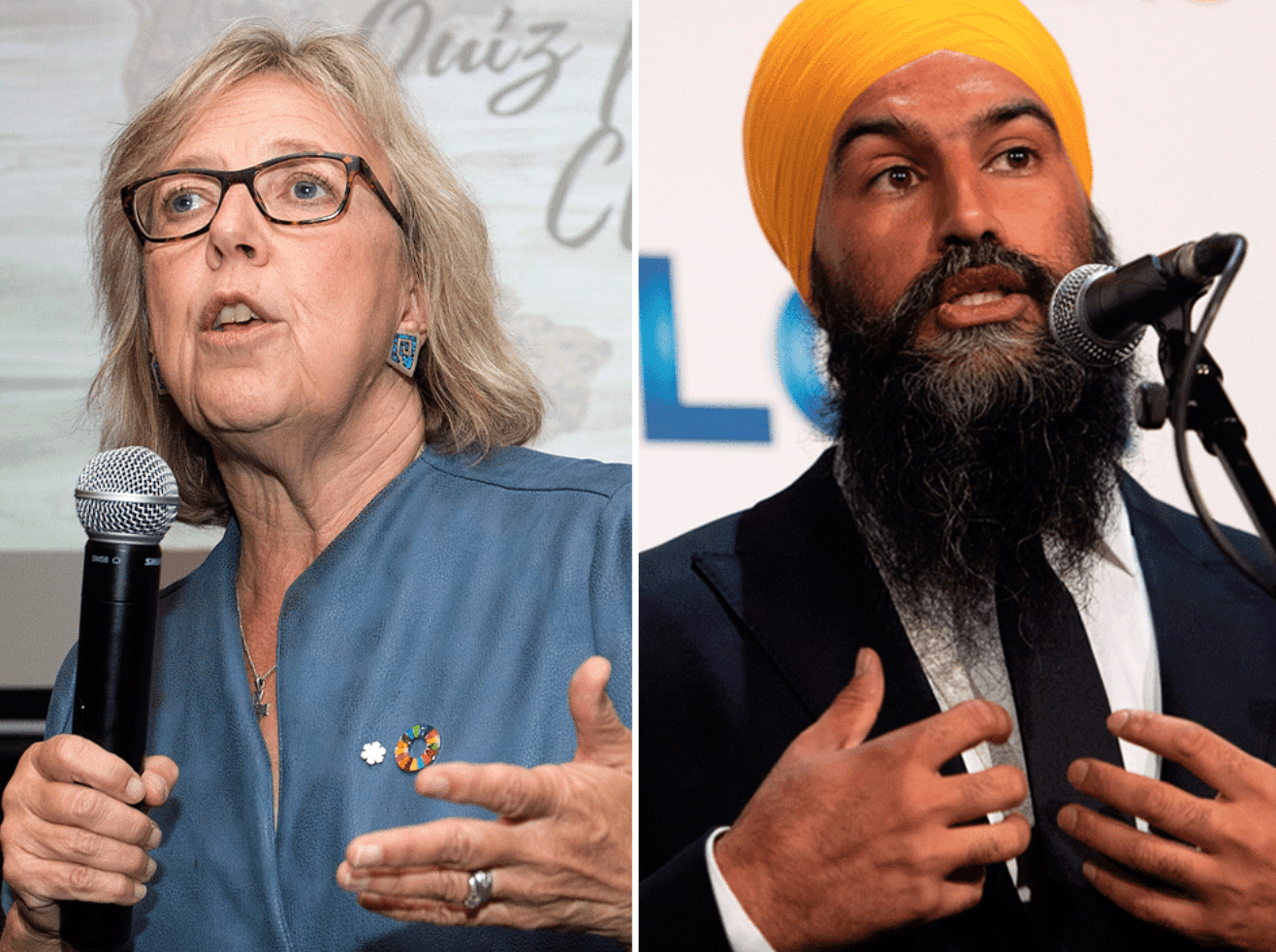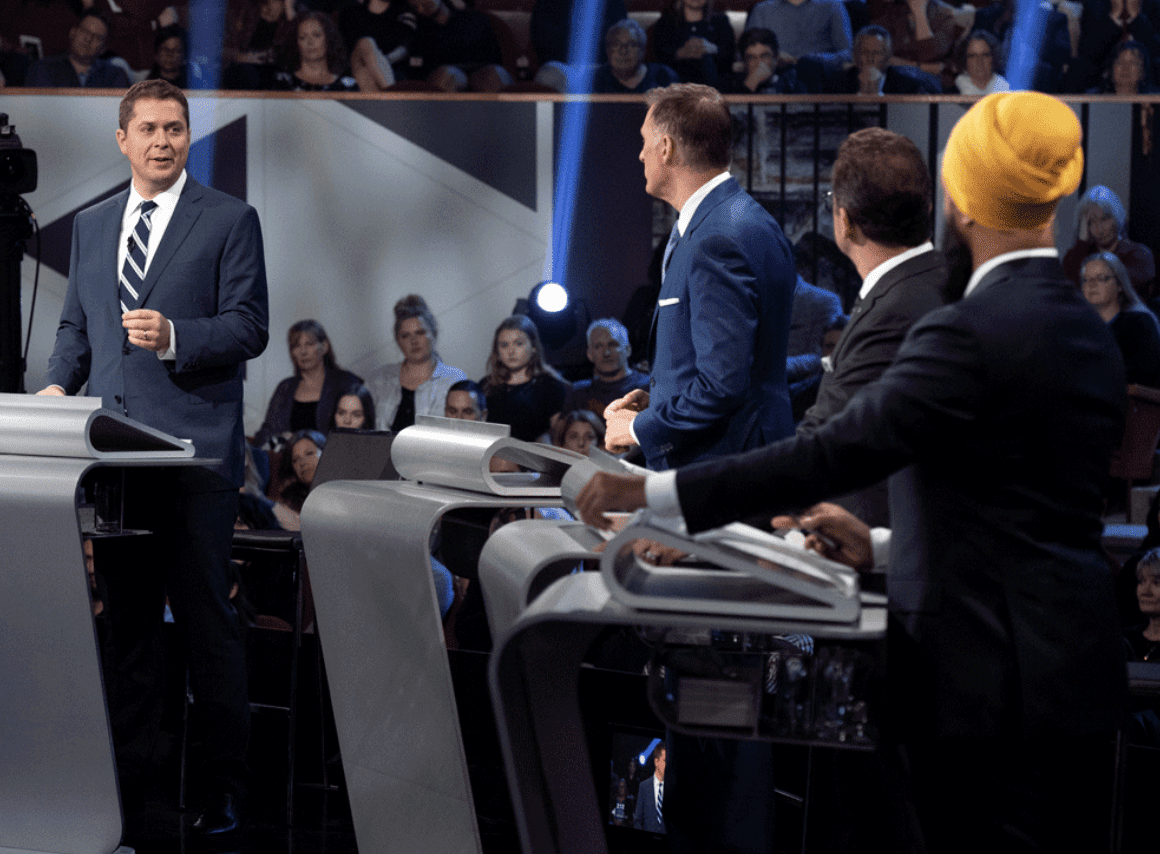As the federal election gets ever closer, and the national polling numbers continue to only move within the margin of error, the talk from the punditocracy and from many of the candidates themselves has become one of a "minority government" (which is a term I won't actually use, but more on that in a moment). And to that end, we saw Elizabeth May in the English debate exclaim to Justin Trudeau "I hope to god you don't get another majority," and on Thursday in advance of the final French debate, Jagmeet Singh started laying down markers for what he considered his priorities in the event that there is not a majority parliament. It may be cute to talk about, and journalists love to get politicians to talk about hypothetical situations, but our collective lack of civic literacy when it comes to government formation means that we are inevitably going to start discussing things from a wrong footing, making our discourse even more terrible than it already is.
First, however, a note about terminology, which is to say that "minority government" is a bad term and we shouldn't use it. A government (meaning Cabinet) is a government, regardless of whether that party commands the majority of the seats in the House of Commons or not, so describing the government as a majority or minority is inaccurate, confusing, and bad. You can refer to a majority parliament, but when no party commands a majority of the seats, the term "hung parliament" is much more apt. As well, we need to be cognisant of the fact that a coalition tends to mean that there is the presence of other parties within the Cabinet, as opposed to an agreement to support a government that doesn't have a majority of the seats. There are other kinds of terms for those kinds of agreements (BC is currently calling theirs a "Supply and Confidence Agreement," meaning that the Green Party there has agreed to vote with the NDP government on matters of Supply meaning fiscal allocations the government needs to run the province and of course any confidence vote that comes up).
It also bears reminding that regardless of the outcome, the current government remains the government until they resign. That means that even if they don't win the most seats in a hung parliament, they can test the confidence of the Chamber, and no, they don't need the permission of the Governor General to do so. When you are considering any post-election configuration, this absolutely needs to be taken into account even though virtually every pundit and newscaster is going to get it wrong on election night (particularly if the hung parliaments in four recent provincial elections are anything to go by).
In terms of any potential governing configurations post-election, I don't find it to be particularly good practice to start dictating terms before a vote has even been held. While some people say it's a good thing because it gives voters an idea of what they might be voting for when it comes to support for certain party candidates, I find that the problems around answering hypotheticals abound in spades. In any hung parliament, the seat math will determine just what kind of bargaining power is available, and it can be a breathtakingly arrogant thing to start demanding a series of red-line non-negotiables when there could be any other combination of third or fourth parties who could do the same job of providing confidence votes for a much lower price.
Consider Singh's press conference on Thursday morning, where he outlined six "priorities" for any future cooperation, after which he started adding a couple more as he thought of them. He essentially demanded that his entire platform be a priority for another government setting aside the fact that four of those demands were wholly or in part areas of provincial jurisdiction, so it's not like the government they are propping up could actually get it done without a great deal of negotiation difficult enough to do in a majority parliament, but even more so when that government has to watch their backs to ensure that the other party pledging to support them don't stab them in an attempt to score political points. Singh's two other official demands were either unfeasible or terrible policy, so why would any government bow to them? It's not a good move on Singh's part because it shows his unreasonableness.
Elizabeth May has also outlined her own "red lines," while openly pleading with Canadians to return a hung parliament so that she can cravenly exert outsized influence upon the eventual government in whatever configuration that may be (though she also has been advocating for the ludicrous notion of policy dictatorship where parliamentary democracy is essentially suspended for a "war Cabinet"). Demanding an end to the Trans Mountain pipeline as a condition just means that the Conservatives would be more likely to prop up the Liberals to ensure that it gets built, which weakens her own position even further.
The other thing that these attempts to exert (or extort) influence in a hung parliament forget is that there is every likelihood that several of the parties will soon find themselves in the midst of leadership contests post-election, which gives the government in a hung parliament even more breathing room (and an ability to play chicken) because those parties won't want to head for another election while they are leaderless and disorganized particularly because we've lost the ability to rapidly change leaders in this country, so we could be at least a year out while the parties drag out the process in the name of "renewal," followed by a period of letting Canadians "get to know" their new leader. If anything, it ensures that there won't be an election for at least 18 months at least, and for these threats and "red lines" to essentially be theatre. If leaders knew better, they would see that for what it was and simply not answer those questions, but here we are.
Photo Credit: National Post








